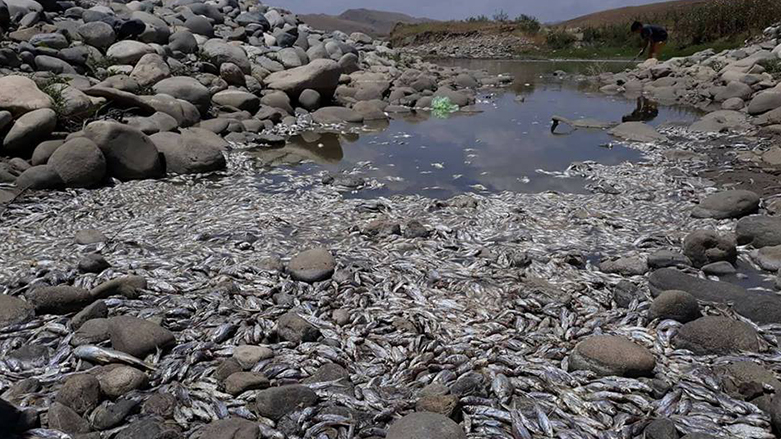For third year in a row, Iran cuts off rivers flowing into Kurdistan Region
The Kurdistan Region's Ministry of Agriculture and Water Resources announced that, for the third year in a row, Iran has cut off the flow of two major rivers on which the autonomous region of Iraq depends as part of its regular water supply.

ERBIL (Kurdistan 24) – The Kurdistan Region's Ministry of Agriculture and Water Resources announced that, for the third year in a row, Iran has cut off the flow of two major rivers on which the autonomous region of Iraq depends as part of its regular water supply.
The ministry said in a statement that, in mid-August, Iran completely blocked the waters of both the Sirwan and Lower Zab rivers upstream from the border between the two.
“It’s been five days since Iran completely cut off the rivers that are pouring into the region,” Akram Mohammed, the Kurdistan Regional Government’s (KRG) Director for Dams and Water Resources, told Kurdistan 24.
Mohammed explained that farmers in Ranya district and others depending on the Darandikhan water route will face the most drastic consequences. If Iran continues to restrict water flow, he warned, it will have a devastating long-term effect on agriculture in those areas.
“The decision will also affect the Halabja (province) water project, for which most of its farmers are depending on that water for farming and orchard keeping. Furthermore, it will cause the death of many fish farms and smaller rivers (fed from the Sirwan and Lower Zab rivers) along the way.”
Mohammed added, “We have spoken with the Iranian Consul-General in Kurdistan, and the region’s minister of agriculture also spoke with deputy minister of Iran’s agriculture, expressing their concern regarding the decision.”
Mohammed stated that the federal Iraqi government has been notified that this is a “matter of sovereignty” and that Baghdad needs to solve it using established diplomatic channels.
On Tuesday, Kurdistan Region’s Ministry of Agriculture said in a statement that cutting off the two rivers violates all international norms and laws, noting that the water belongs to both the Iraqi and Iranian peoples, not just one country.
Also known as the Little Zab, the Lower Zab River originates in Iran and joins the Tigris just south of al-Zab in the Kurdistan Region. The river is approximately 400 kilometers (250 miles) long and drains an area of about 22,000 square kilometers (8,500 square miles). In addition to farming, Kurdistan uses water from the Lower Zab to produce electricity.
Editing by John J. Catherine